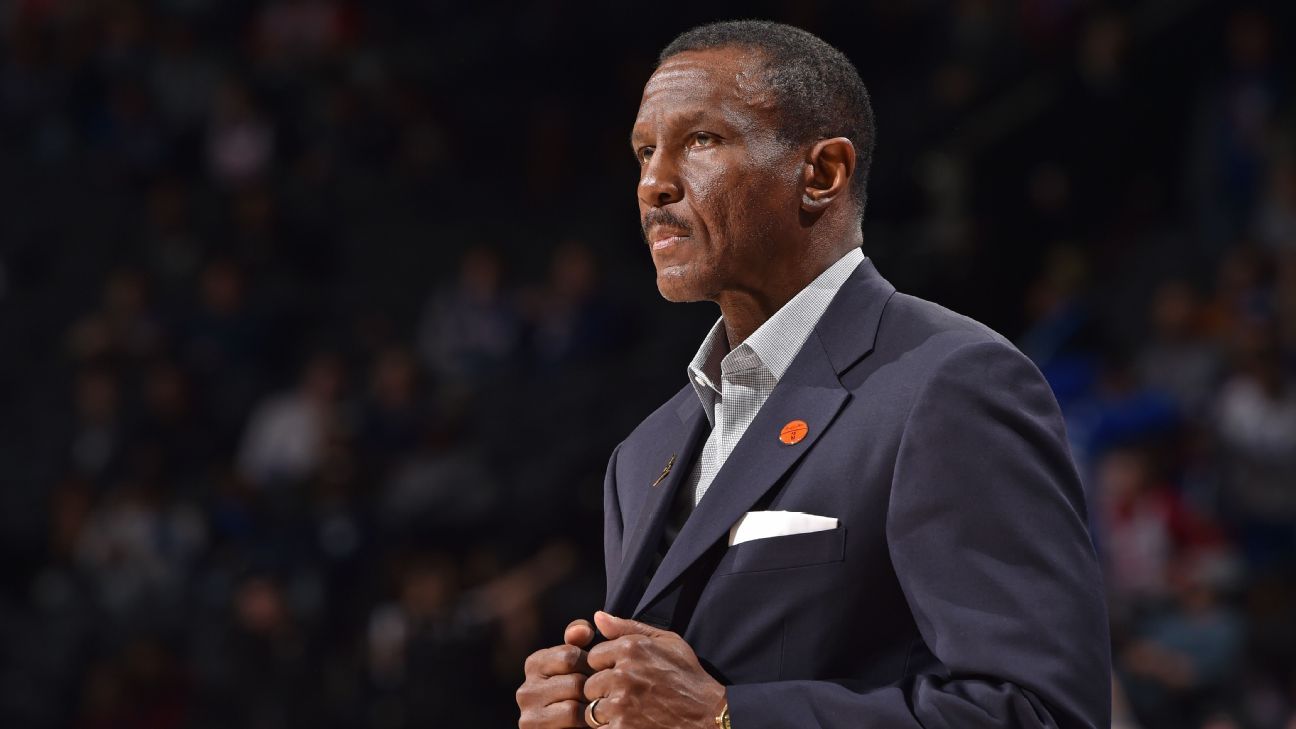Detroit Pistons coach Dwane Casey lived through desegregation in Kentucky and said he knows what it feels like to go into a new school unwanted and unwelcome.
He has seen the deaths of George Floyd in Minneapolis, Ahmaud Arbery in Georgia and Breonna Taylor in Kentucky.
On Saturday, Casey, who is black, said he wonders if anything has changed from when he was an 8-year-old boy walking into a white school, feeling helpless and unseen, not heard and not understood.
“Fifty-four years later, my son is now 8 years old and I look at the world he is growing up in and wonder, how much has really changed?” Casey, 63, said in a statement. “How often is he judged on sight? Is he growing up in a world where he is seen, and heard, and understood? Does he feel helpless? Will he be treated like George Floyd or Ahmaud Arbery?
“What have we really done in the last 54 years to make his 8-year-old world better than mine was? We all have to be and do better.”
“Now is the time for real change.”
A statement from Dwane Casey: https://t.co/86Mmc8KvGP pic.twitter.com/AhbRBMCHX1
— Detroit Pistons (@DetroitPistons) May 30, 2020
Casey said that when he was a child, there was no way to record his treatment because cell phones, cable news and social media were not yet in existence to show the reality of the situation he lived in.
But he knows what he felt then and what he sees now. Casey said in his statement that watching the events following Floyd’s death in Minneapolis — a place where he was the head coach from 2005 to 2007 — left him understanding how many people could feel the same things — “helpless, frustrated, invisible, angry.”
Casey called for “real change” to how humans view one another as a way to help as protests continue across the country, including in Detroit, where he now coaches.
“We have to change the way we see and hear each other,” Casey said in the statement. “We have to work together to find solutions to make the justice system just. Black, white and brown people have to work together to find new answers. The only way we can stop the systemic problems that people of color have faced all our lives is through honesty and transparency.
“We have to understand why people are at their limit at this moment. It takes empathy, in its truest form. It takes a culture shift, it takes action. Let’s stop the injustice now. Let’s not allow another generation to continue to live in a world where they are treated as unequal. Now is the time for real change.”
Casey went to high school in Morganfield, Kentucky, prior to playing college basketball at Kentucky from 1975 to 1979. He was a college assistant at Kentucky and Western Kentucky, an NBA assistant in Seattle and Dallas, and a head coach in Minnesota and Toronto before his current position with Detroit.
